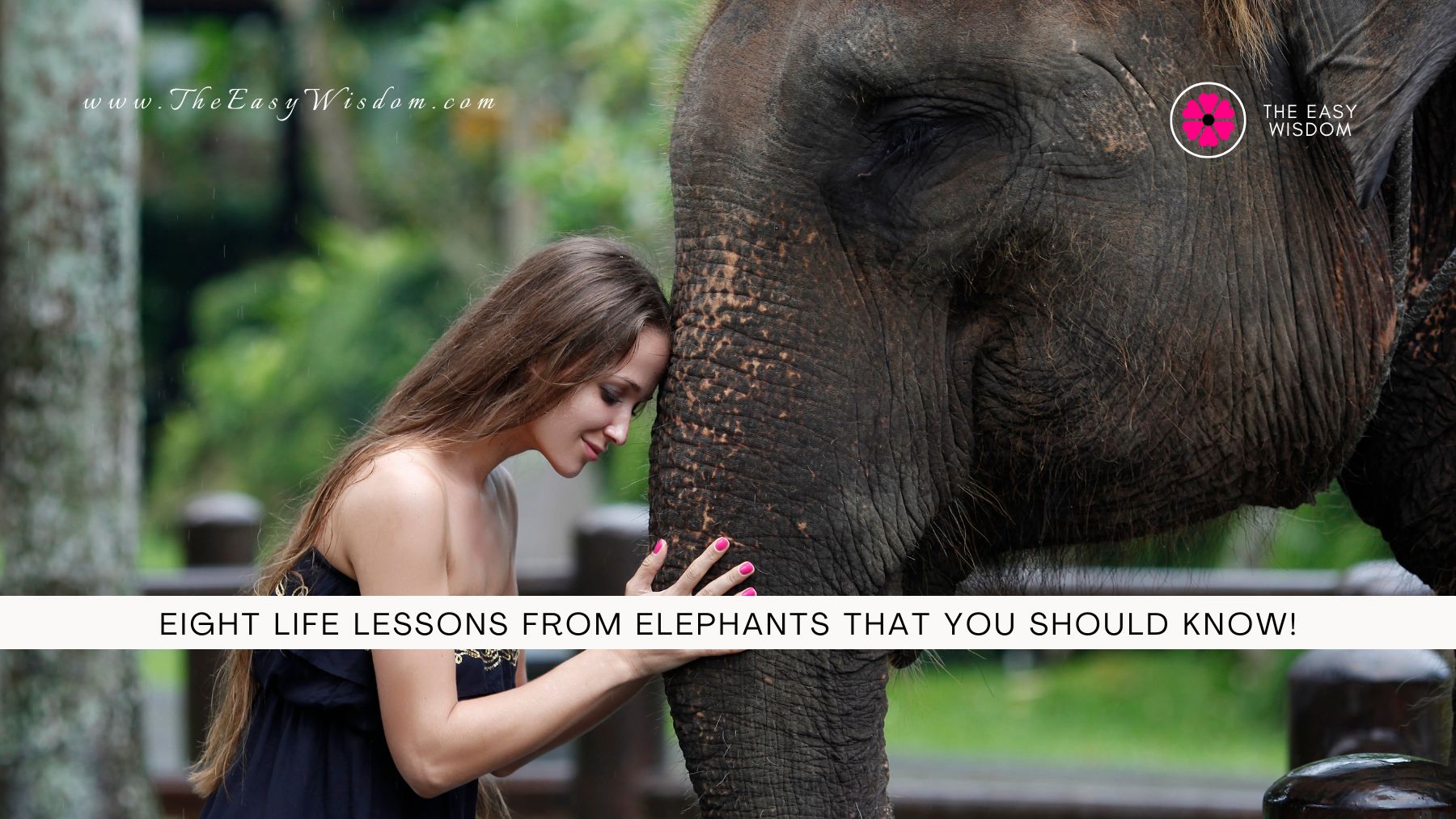Elephants are as impressive as the life lessons they teach us, and we should imbibe a few impeccable life lessons from elephants in our daily lives.
Some stories simply grab us. A pregnant elephant died in India apparently after eating some fruit containing a firecracker that exploded in her mouth. It prompted the authorities to initiate a criminal investigation into the suspected cruelty toward animals. The pregnant elephant was wandering on the outer perimeter of the local Silent Valley National Park in search of food when the incident occurred. This incident alerted us and shifted our attention to wildlife and its pathos.
It’s perhaps time to understand the big picture today, give Elephants their due respect in terms of space and freedom, and learn some essential life lessons from elephants while imbibing them in our everyday lives.
The mighty elephant needs about 150 kgs of food and 150 litres of water every day. And it is quite possible for elephants to feel starved and dehydrated quickly. There is a chorus of outrage in elephants for food and water. As a result, man-animal conflicts are but natural.
Habitat loss for elephants in India has been so extensive that elephants all over the country are wandering out in the agricultural fields for food leading to a man-animal conflict for limited resources. These marauding giants kill about 300 people yearly as they march into villages searching for food with shrinking habitats and land.
So why are elephants dying?
Electrocution is the number one cause of their death due to live wires that are laid across elephants’ paths. The other causes include man-animal conflicts, train accidents, poaching (for elephant ivory), and poisoning.
You will be surprised to know that various countries have accorded the highest protection to elephants under the wildlife protection law, yet they are the most susceptible animals. For instance, under the wildlife protection law, the Government of India promises the highest protection for elephants. It has taken various measures, such as installing electronic tags and creating dedicated elephant corridors, tunnels, and underpasses, to give the inherent natural right to the elephants to live as a free, social animals in the wild. But all government efforts can only be practical if we as humans respect the animals in the wild.
The only thing that keeps the Indian elephants still protected is the reverence in the heart of the villagers and society at large.
How does the well-being of elephants affect nature?
Elephants came to this planet 2 billion years ago and are our ecosystem engineers. They have only two jobs – to eat and poo. As they move, feed, and defecate, they disperse seeds far and wide. They wander across the forest 16-18 hours a day; they eat and then poo, and in the dung are the seeds.
When they walk around, they disperse seeds in their dung. And these seeds then become trees, turning forests into grasslands and woods. They are, therefore, the key to the genetic diversity of trees in forests.
Eight life lessons from elephants
Not only are elephants indispensable, as their extinction means the complete collapse of the forest ecosystem, but elephants can also teach us simple life lessons.
Let us see 8 top life lessons from elephants to learn:
1. They demonstrate patience
The elephant’s gestation period during pregnancy is approximately 22 months, unlike humans. It requires patience as the graceful animal bear the child inside with serenity and moves along in life. Therefore, elephants demonstrate tolerance and teach us to follow the same in life.
2. They teach us about endurance
Elephants often walk many kilometres in the search for food and water and maraud in forests for 16-18 hours a day. It clearly demonstrates their endurance and strength. We, humans, are far superior to the race of elephants and should learn resilience and perseverance from them.
3. They teach us about teamwork and family values
Elephants often move in herds while searching for food and water, displaying teamwork and bonding skills. They are known to develop strong, intimate bonds between friends and family members.
The greatest thing about these family groups is that they’re not sometimes biologically related, yet they treat them all as family and part of the community.
4. They teach us about matriarchy and community living
Elephants are ruled by an older female who often leads effortlessly with a peaceful and less forceful approach. Therefore, the elephants demonstrate that matriarchy can easily prevail and thrive.
Also, elephants teach us about community living. The entire herd takes care of the elders and the baby elephants. It shows their community orientation, nurturing nature, and values of respect embedded in their value ecosystem.
5. They teach us to give back to nature
The elephants disperse seeds far and wide as they move, feed, and defecate. And in their dung are the seeds. When they walk around, they disperse seeds in their waste, and these seeds become trees. Also, elephant dung is a perfect fertilizer as it is rich in nutrients and nourishes the soil.
Therefore, elephants thrive in nature and give back to nature. They care for nature by paying it back. What do we humans pay back to nature- deforestation, pollution? It is time for us to reflect and give back what mighty nature deserves before it consumes us all.
6. They teach us to sacrifice and move on
Humans have tragically impacted elephants. The ivory trade and poaching over generations have devastated these beautiful animals. Much of the population has been affected by deforestation and overcrowding of people in their habitat. Yet elephants continue as they have, living in balance with nature the best they can.
Elephants teach us to bear and witness the loss of species and to be aware of our own destinies.
7. They teach us to enjoy the simple pleasures of life
Elephants enjoy playing in the water, marauding the fields, eating sugar canes and napping. They take simple pleasures in life by enjoying the little things that come their way.
8. They teach us never to forget but forgive
Elephants demonstrate an elephantine memory. An elephant’s memory is critical to its survival and for its herd in the wild. So how does it happen? A great deal of elephants’ survival can be attributed to their remarkable memories.
Science has also proven that elephants have great memories. Elephants almost certainly know every member in their group and exhibit cognitive abilities far in advance than other animals have shown to have.
Humans have taken up their habitats and domesticated them. There have been several incidences of cruelty by humans towards these animals, yet elephants love humans and are their best friends. They know to coexist together by forgiving us despite our atrocities.
Therefore, we humans should learn from elephants to never forget but forgive!
Quick Fact Check: Taman Safari, Indonesia names the newborn Sumatran elephant as 'COVID'
If you liked this article, share it with someone who would love to read it. Also, if you know of more life lessons we can learn from elephants, please mention them in the comments section below. We would love to hear your thoughts.

